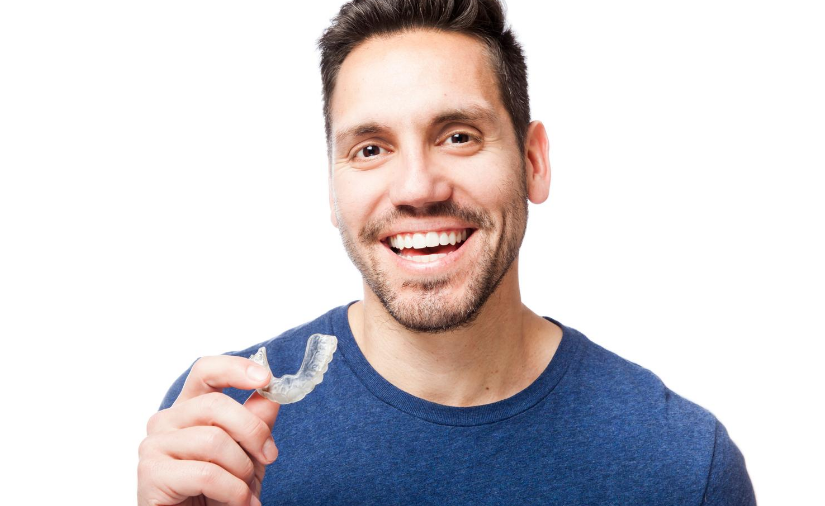By: Dr. Elizabeth Eggert
Orthodontics is defined by Merriam-Webster as “a branch of dentistry dealing with irregularities of the teeth (such as malocclusion) and their correction (as by braces).”
When we hear “orthodontics” we often think “teenagers.” While teens are the biggest consumers of orthodontics, orthodontic treatment can correct your bite at any age.
Orthodontics For Adults
While kids’ teeth will generally respond faster to orthodontic correction, adult teeth can also be moved to improve your bite as well as to improve your esthetics. A few famous adult faces have sported braces in recent years, including Tom Cruise and Faye Dunaway.
Invisalign and other clear aligners are a welcome option for adults who want to improve their dental alignment, but are hesitant to have a tin grin 24/7. (Yes, we want to look younger. But not like that!)
How Does Invisalign Work?
Invisalign is a system that moves teeth using clear aligners, flexible custom-molded devices, which gradually move the teeth over the course of many months. Users will get a new set of aligners every one to two weeks. During the first few days, the aligner compels the teeth to move into a new position. For the remaining time in that aligner, the bone in the jaw adjusts for the new location, building up bone to help support the tooth in its new location.
Many adult Invisalign users prefer the discreet appearance of these clear plastic aligners, compared to traditional metal braces. For some people, the fact that it can be removed for special events such as delivering presentations, getting pictures taken, or eating corn on the cob is a big part of the appeal. However, it’s vital to wear them for the recommended 22 hours per day in order to get satisfactory results.
Invisalign is gentler and less invasive than traditional braces, so there’s less discomfort involved. It’s also easier to care for teeth with Invisalign than with traditional braces: Just remove the aligners and brush and floss as you normally would.
Maybe you had braces as a kid, and your teeth have drifted back into poor alignment. Maybe you didn’t have braces as a kid because you didn’t need them then, or because of financial considerations, or the options at the time made you too self-conscious.
Whatever the reason, we encourage you to decide for yourself. If your teeth and bite aren’t exactly what you wish they were, maybe we can help. Ask Dr. Elizabeth or Dr. Jeff the next time you’re in for your recare appointment, or call our administrative team and make an appointment to really understand your options.
